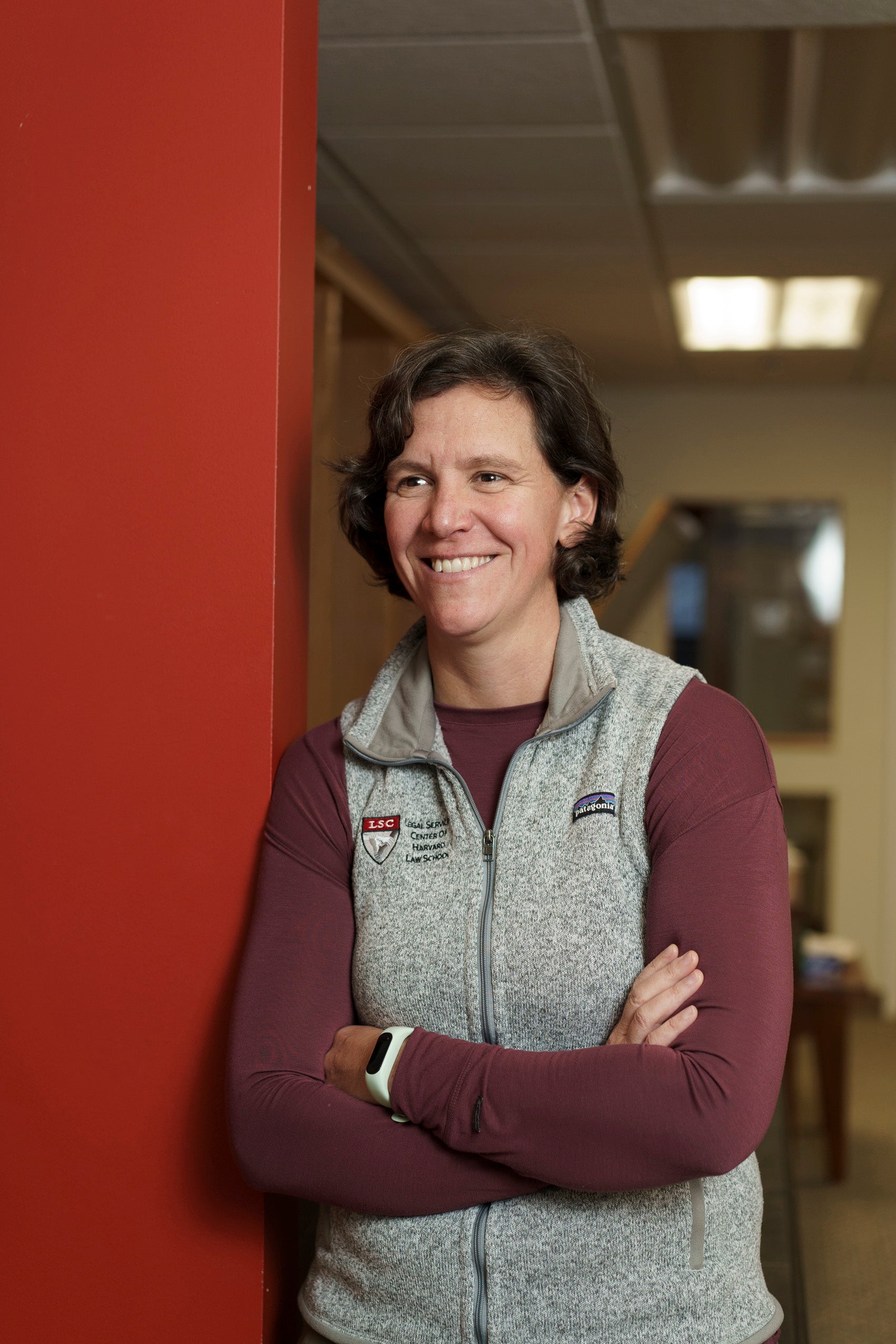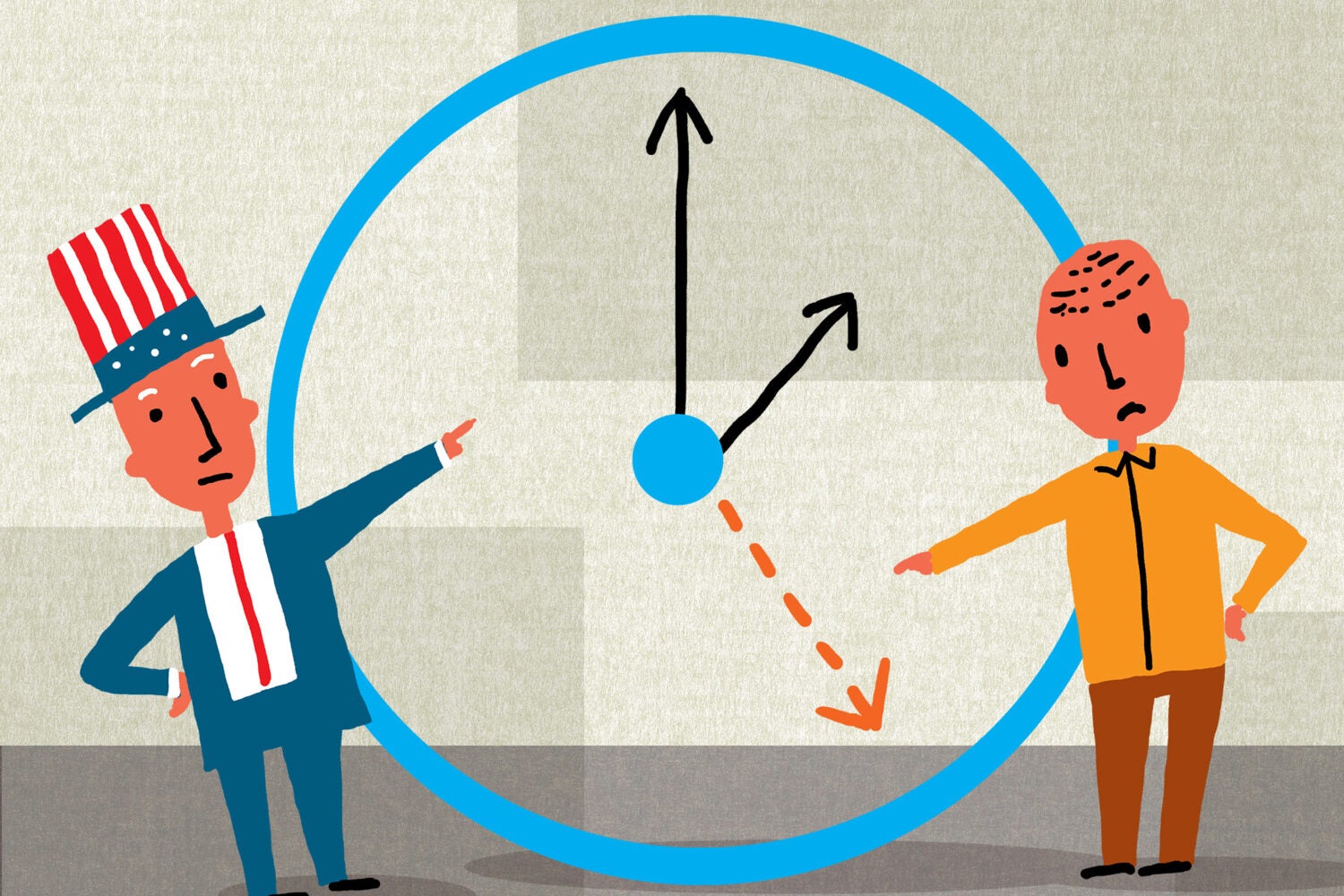For nearly 100 years, when the Internal Revenue Service has told taxpayers they owe more money than they thought — with what’s called a “Notice of Deficiency” — the taxpayer has had exactly 90 days to challenge that determination by petitioning the U.S. Tax Court. If the taxpayer missed the deadline, the court couldn’t hear their case, no matter the reason: serious illness, even situations where the IRS gave them the wrong date by which to contact the court. It’s been an unfair burden on taxpayers, many believe — after all, there are sometimes very good reasons for missing a deadline. Students and faculty at the Tax Litigation Clinic at the WilmerHale Legal Services Center of Harvard Law School have been working tirelessly to change this. Now their efforts on tax deadline cases are paying off, with two recent wins, including one in the U.S. Supreme Court.
In 2022, in Boechler, P.C. v. Commissioner of Internal Revenue, the clinic was part of an effort that persuaded the Supreme Court that taxpayers should have the chance to explain to the Tax Court why they missed a 30-day deadline in a so-called collection due process case. And this past July, in Culp v. Commissioner of Internal Revenue, the clinic was amicus counsel when the U.S. Court of Appeals for the 3rd Circuit held that the 90-day deadline for tax deficiency cases is not jurisdictional, and the Tax Court must consider equitable reasons for allowing late lawsuits. In other words, taxpayers shouldn’t be shut out of explaining to the court why they missed the deadline.
“Equity is about not being so rigid on deadlines when circumstances beyond a taxpayer’s control cause them to file late, or when the IRS misleads them into filing late through incorrect correspondence,” says Carlton Smith ’81, a longtime tax lawyer and expert in impact litigation who has been volunteering at the HLS Tax Litigation Clinic (formerly called the Federal Tax Clinic) since 2015.

Though it’s drawn little attention in the general media, the appeals court ruling in Culp is a “seismic shift” in the tax world, according to the legal news site JD Supra.
“It doesn’t sound exciting at first glance, but it impacts a lot of people,” says Audrey Patten, a clinical instructor and acting director of the clinic. “A deficiency case is what brings most people to Tax Court. Before Culp, if someone missed the deadline, the door slammed shut no matter what. Now you can say to the court, ‘Please open the door.’ This is about access to courts for everyone,” says Patten.
While right now the ruling applies only to taxpayers in the 3rd Circuit, the clinic is looking to expand it to other federal circuits. And because Culp creates a circuit split on the issue, the case may very well be taken up by the Supreme Court, an exciting prospect for those who’ve worked to bring more fairness into the system.
Each year, the Tax Litigation Clinic takes on at least 100 new clients, says Patten, with cases that present a wide range of substantive and procedural issues through which students learn lawyering skills while seeing the role tax advocacy can play in anti-poverty efforts. The bulk of the clinic’s work is direct representation of taxpayers in all stages of tax litigation, from dealing directly with the IRS to arguing cases before the Tax Court and the U.S. district courts. But students may also get the remarkable opportunity of arguing before the circuit courts of appeals, says Patten.
For about seven years, Smith and Keith Fogg, clinical professor of law emeritus, who founded the clinic in 2015 and served as its director until 2022, have sought out cases that stand to make a big impact in tax law, including filing deadline cases. There are several types of cases that most often end up in Tax Court, including deficiency cases and collection due process cases. Each type of case has a different statutory deadline by which a taxpayer must petition the court. The courts have long interpreted these deadlines as jurisdictional, meaning a court can’t take the case if it wasn’t filed on time.
“Equity is about not being so rigid on deadlines when circumstances beyond a taxpayer’s control cause late filing.”
“It’s a very strict interpretation,” says Patten, “and our goal has been to chop away at that interpretation. We argue there should be an opportunity for what’s called ‘equitable tolling,’ where you have a good excuse for being late and the court can decide if there’s a good excuse and then they can let the case in.”
For years, the clinic helped to steward through multiple layers of appeal a collection due process case brought by a small North Dakota law firm, Boechler, P.C. The effort involved amicus briefs from the clinic and the work of many students. In handing down a victory for the taxpayer in Boechler in 2022, the Supreme Court stated unanimously that the filing deadline in the case was subject to equitable tolling. A former Tax Clinic student, Amy Feinberg ’18, who as an associate at Latham & Watkins argued the case in the 8th Circuit, was part of a three-person team that won the case in the Supreme Court. The ruling laid the groundwork for Culp as well as other deadline cases the clinic is now pursuing.

“After seven years, we succeeded in winning Boechler in the Supreme Court,” says Fogg. “After the Tax Court told us 17-0 that we were wrong, the Supreme Court said 9-0 we were right.” But only about 3% of cases are collection due process cases like Boechler; nearly all the rest are deficiency cases like Culp. “By winning Culp,we’ve taken a giant step toward winning the 95% of what is litigated,” he notes.
“The argument brought up on appeal to the 3rd Circuit was that the logic the Supreme Court applied in Boechler should be applied to deficiency cases as well,” says Patten. “It opened the door for organizations interested in this issue, including our client, the Center for Taxpayer Rights,” which wants to get its voice heard in other cases around the country where people want to challenge Tax Court deadlines.
At least 10 students have worked on Culp and other deadline cases over the past seven years, says Patten. She, Smith, and Fogg served as amicus counsel on the case for the Center for Taxpayer Rights. As the briefs on Culp were due between semesters, Patten, Fogg, and Smith wrote theirs, relying in part on the research and prior drafts of the argument at issue that had been prepared by various students. As a student in the clinic, Oliver Roberts ’21 presented the oral argument to the 3rd Circuit on behalf of the plaintiffs, Isobel and David Culp, and Fogg made the amicus argument.
Culp marks the second time Roberts has successfully argued a jurisdictional tax case to the 3rd Circuit; the first was in 2020, when as a clinical student he presented his argument by phone due to the COVID-19 pandemic. In that case, he and the clinic represented a couple audited by the IRS who disagreed with the amount the agency said they owed. But the couple were unaware of their right to dispute the finding because the IRS sent that notification to the wrong address. The 3rd Circuit reversed a decision by the Tax Court and agreed with the clinic that the couple were deprived of their right to challenge the audit.
“We are on the lookout for these kinds of cases to expand this to other circuits, either as counsel in chief or through amicus briefs,” says Patten. “My prediction is it will go in front of some other circuits soon, and depending on how those circuits rule, it may go up to the Supreme Court.”
Fogg has high praise for the clinic’s students and instructors, and for Harvard Law, too, for its support of the work.
“The Harvard clinic is the only tax clinic in the country doing these cases before circuit courts on a routine basis, and that’s because of the financial and other support Harvard provides,” including for the cost of filing these lawsuits and of flying students around the country for arguments, says Fogg, who practiced at the IRS Office of Chief Counsel for more than 30 years. And because many taxpayers can’t afford legal help in these cases — even for middle-class taxpayers, the amount in controversy may be less than the cost of hiring a lawyer — it’s all the more important that the clinic offer it. “I’m not an IRS basher,” he says, “but the way the agency works can be very difficult. Some of these cases are Kafkaesque, where you keep running up against bureaucracy and don’t understand what is happening.”
“Students make a lot of magic for a lot of people coming through here,” says Patten. “It’s still not a good thing to miss your deadline,” she adds, chuckling, “but we don’t think a court should be handcuffed if you do.”
